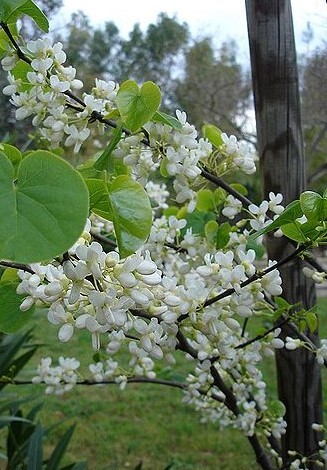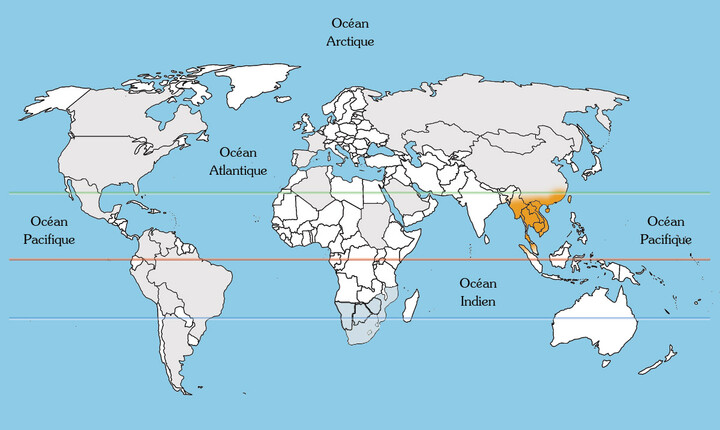Judas Tree Alba
Presentation
Cercis siliquastrum alba is less commonly-found in our gardens than its cousin the Judas tree, which has pink flowers. This magnificent variety is characterized by white flowers that bloom in spring.
Its blooms, which burst forth in April before the leaves appear, are “cauliflorous”, meaning the flowers form directly on the trunk or branches (rather than on stems as is the case for most plants). This unique feature lends the tree its very original aesthetic.
The fruit, in the form of pods, appears at the end of the season – another botanical peculiarity that makes the Cercis siliquastrum alba a particularly interesting tree all year round.
The Judas Tree Alba was probably introduced into Europe at the time of the Crusades.
Its resistance to drought and need for plenty of sunshine make it an ideal choice for our location on the Côte d’Azur.
Identity
| Latin name : | Cercis siliquastrum alba |
|---|---|
| Family : | fabacées |
| Genus : | Cercis |
| Species : | Siliquastrum |
| Variety : | Alba |
| Color : | Leaves initially yellow, turning matt green, creamy white flowers, brown pods |
| Origin : | South Asia |
| Foliage : | Deciduous |
| Height : | 6 to 10 m |
| Flowering : | April-May |
| Location : | Nr. 10 (Coco Sweet 217/218) |
Did you know?
The buds of the Judas Tree are used in gemmotherapy to treat circulation disorders. The buds, flowers and young, still-tender fruit can be eaten raw in salads.


